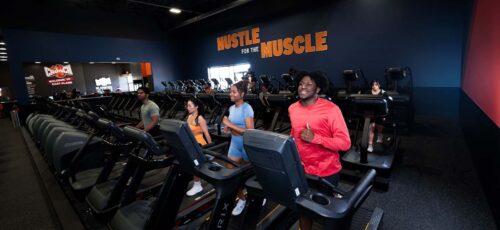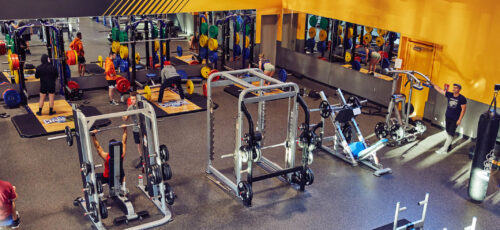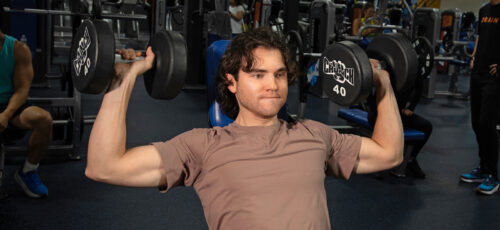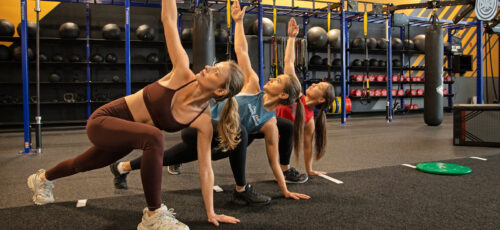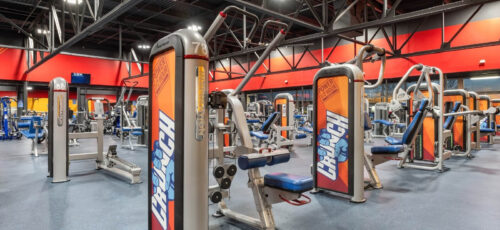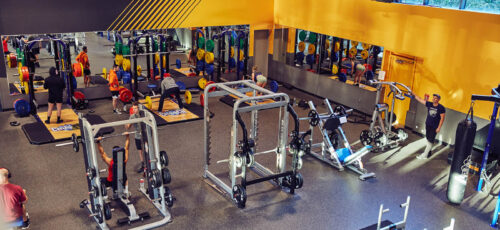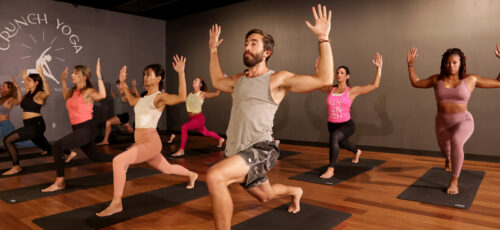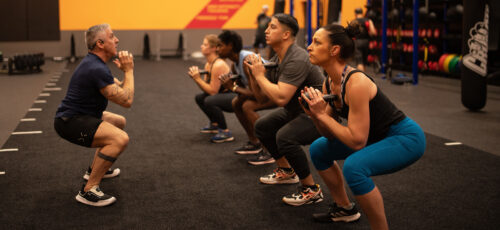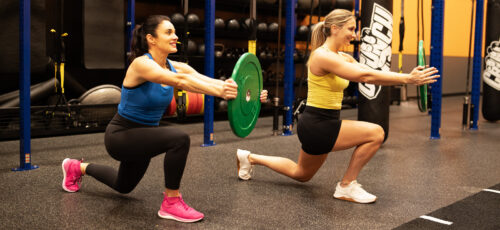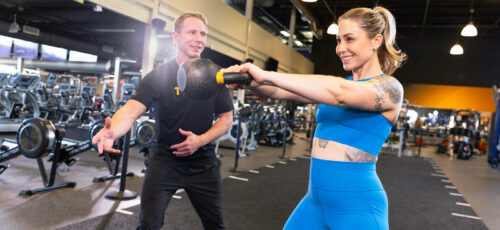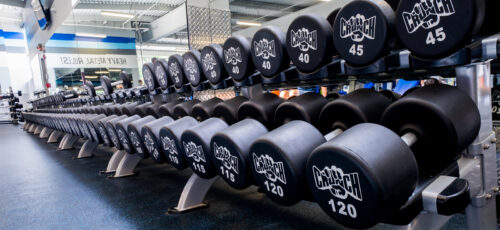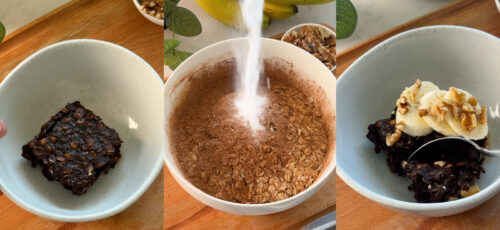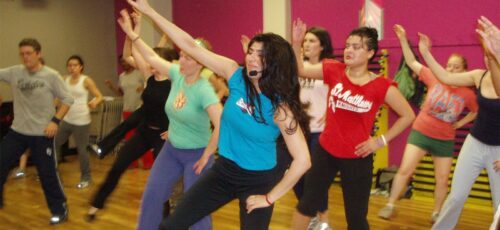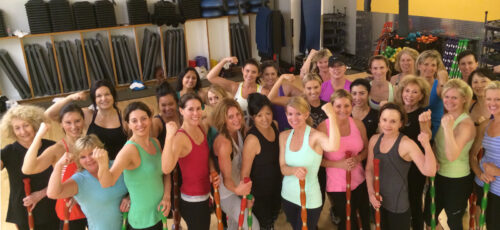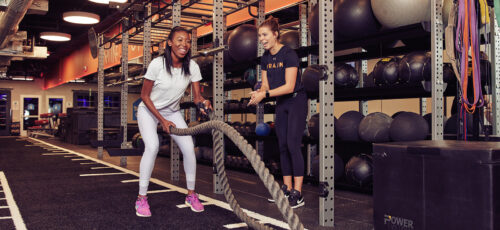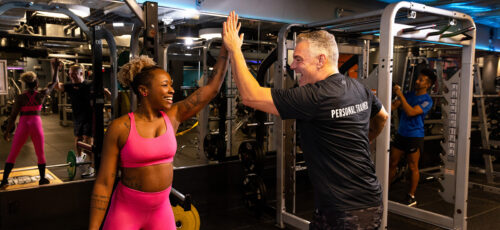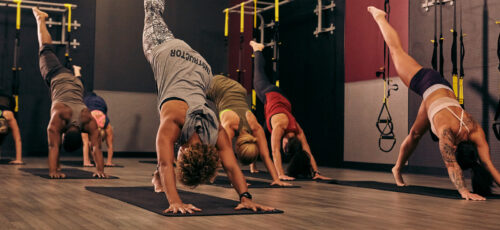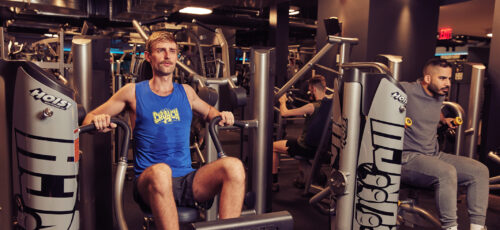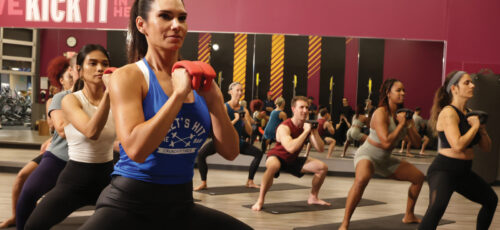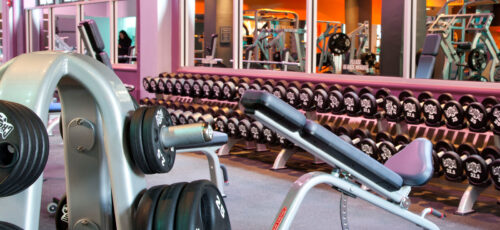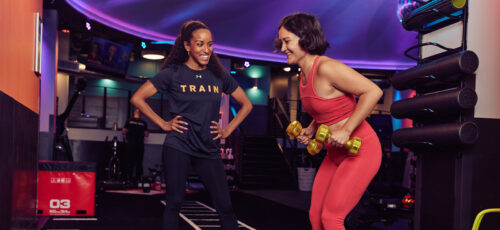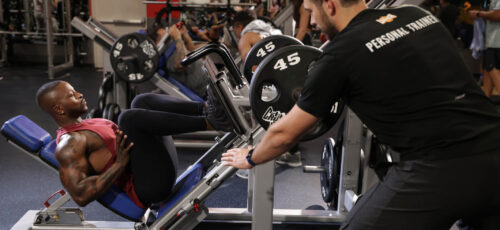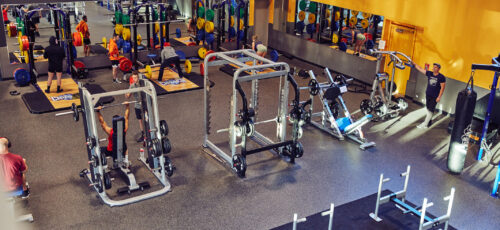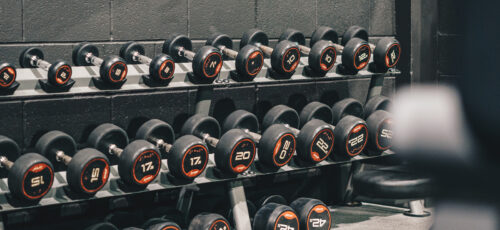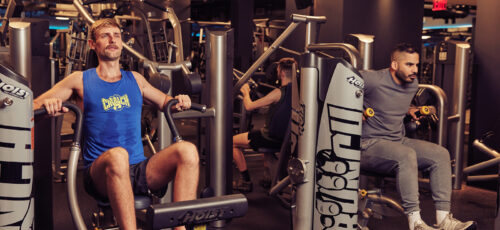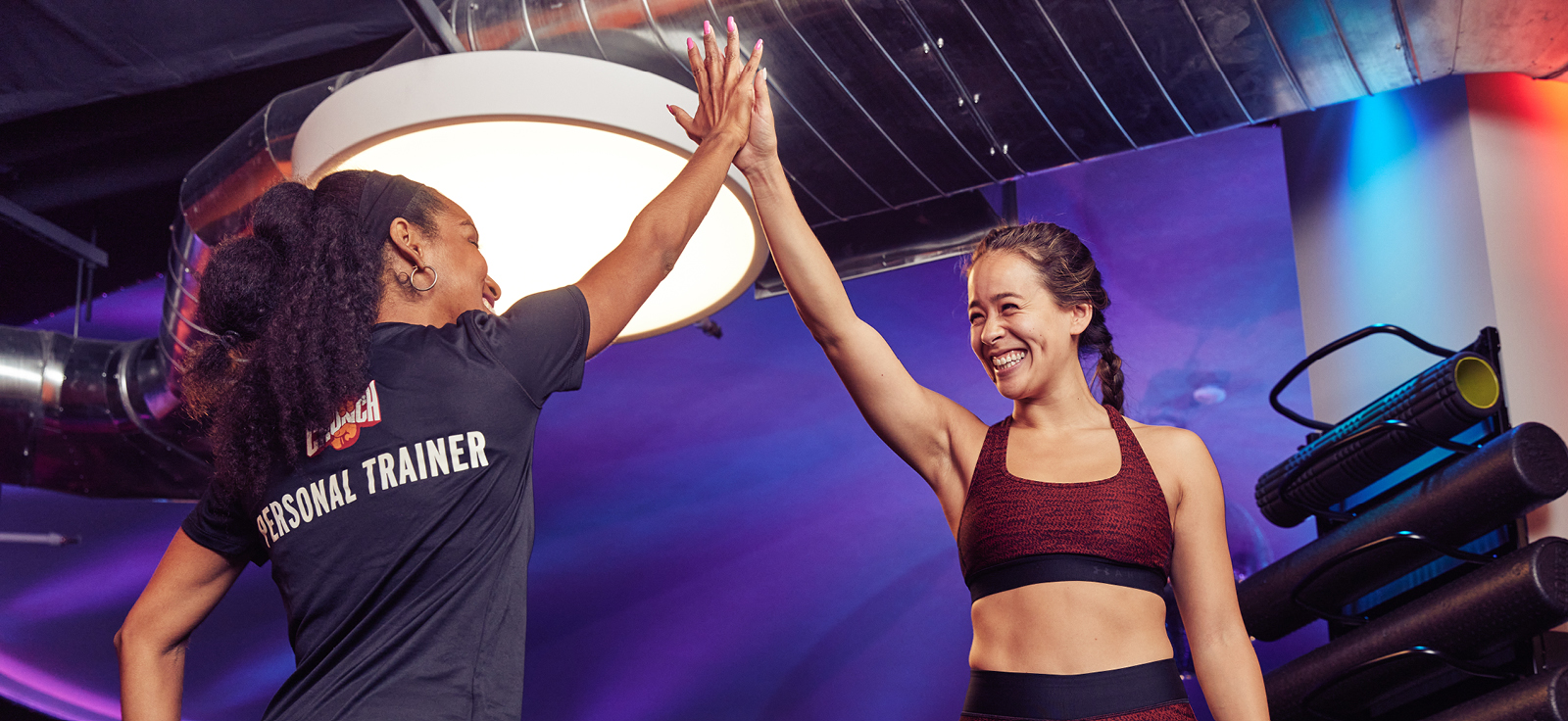
5 Tips to Achieve Your Goals in 2023
Fad diets, magic pills, and exhaustive measures are outdated and unhealthy. The well-known “get-fit-quick” schemes simply don’t work as the foundation of achieving your fitness goals remains a balanced, nutrient-dense, calorie-controlled diet combined with physical activity. Hand-in-hand with the right mindset, this is the recipe for success.
Let’s discuss how to build these habits to guarantee you meet your fitness goals in 2023.
The Mindset Behind Your Fitness Goals
If you’re reading this article, you’re likely wondering how to achieve your fitness goals. First off, humans are complex beings. Because of this, the psychology of adopting a new fitness routine is more than just “eat this and don’t eat that, do this exercise, fast, and don’t be lazy.” It’s not just “eat fewer calories” and “eat healthy food.” Instead, it is more about having compassion for ourselves and understanding our inner mindset and relationship with food. In short, health and fitness goals require both behavioral change and physical action.
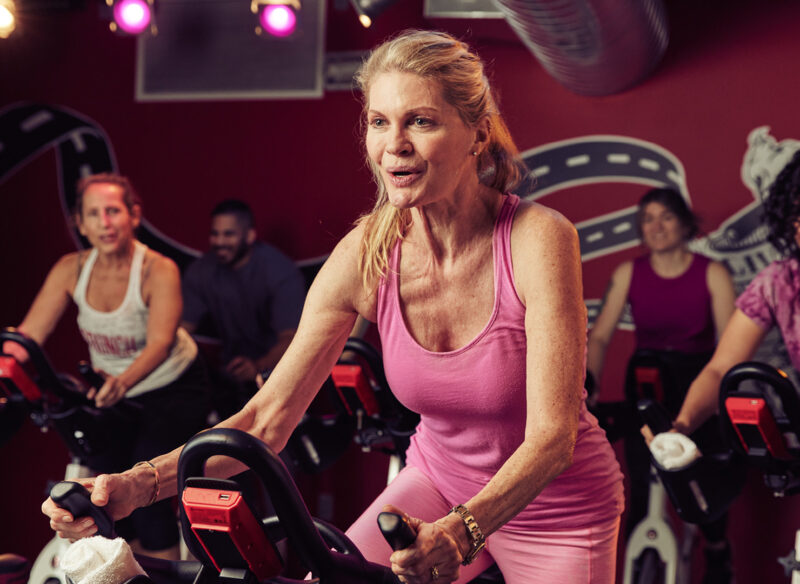
In an article published on Healthline, the author explains, “The restriction mindset can lead to binging and further restriction—an unhealthy cycle that can cause weight-cycling, which is associated with a higher risk of disease and mortality.”
Consider it this way: you can commit yourself to a weight-loss diet and exercise regimen for a short period. You might even hit your fitness goal, but it required extreme dieting and exercise and didn’t include building positive habits. This method ruined your metabolic health, caused muscle loss, and was mentally exhausting. Because the hard part of losing weight isn’t the weight loss; it’s the change in habits. On the other hand, if you take your time, better analyze your daily patterns, and start small with positive habits, it will snowball into a maintainable weight loss program in which you thrive. In this scenario, the key is having the right motivation to drive you forward.
What is Your Motivation?
Take a moment to consider this question. What motivates you to increase your water intake, build muscle, or lose weight? It is essential to ask yourself; your answer matters significantly. Considering you want to look better and feel great. Suppose your motivation is to alleviate the excess weight on your hips or alleviate exhaustion. Wonderful. Whatever your motivation is, identify it, write it down, and share it with your friends, family, and gym partner. Your why is critical to building any new habit or achieving any goal. Because to have grit and determination, the task must matter to who you are. It will make it easier to plan and stay consistent as you work towards improving your overall health.
Why Now?
Why do you want to increase your fitness level now? There may be an essential event in your life that you want to look and feel your best for. Or maybe you want to reduce your risk of diabetes, heart disease, and other illnesses as you age. Perhaps it’s a choice simply for yourself. Whatever the reason, now is the perfect time to start. Remember to meet realistic deadlines when setting goals and checkpoints for your fitness journey. Hold yourself accountable. Commit yourself to doing better than you’ve ever done before simply because you can. As you complete each benchmark, celebrate. Remember that you’re capable of greatness.

1: Identify Your Current Habits
This section is about identifying your current habits to understand which ones serve you well and which don’t. Registered dietician Lainey Younkin shares our habits: “Drastic diets aren’t necessary for weight loss. They may wreak havoc on your metabolism and lead to weight regain. Take the simple and more effective approach of changing your habits instead for weight loss that lasts.”
Think about your daily life. Do you exercise regularly? Are you committed to an educational program or career? Do you eat well? How would you classify your mood and interactions with others? Consider writing down your thoughts in a notepad or on your phone. It is essential to do this regularly. Let’s discuss this further.
Which Habits are Beneficial for a Healthy Lifestyle?
Consistency is a highly beneficial habit for a healthy lifestyle. Long-term fitness goals, such as weight control, are about more than exercising and eating foods that are dense with vitamins and minerals. It’s about doing each of these habits consistently. An excellent example is bodybuilders. They can lift heavy weights once or twice a week. They may drink protein shakes and watch videos on form and fitness, but they won’t bulk up unless they make an active effort in the gym every day, minus a rest day.
When it comes to sustainable, realistic fitness goals, helpful habits include:
- monitoring your calorie intake, blood pressure, and blood sugar,
- participating in strength training and cardiovascular exercise,
- eating slowly, and
- avoiding processed foods.
The combination of these can vary from person to person, but the key is to identify your unique body composition and build smart fitness goals around that.
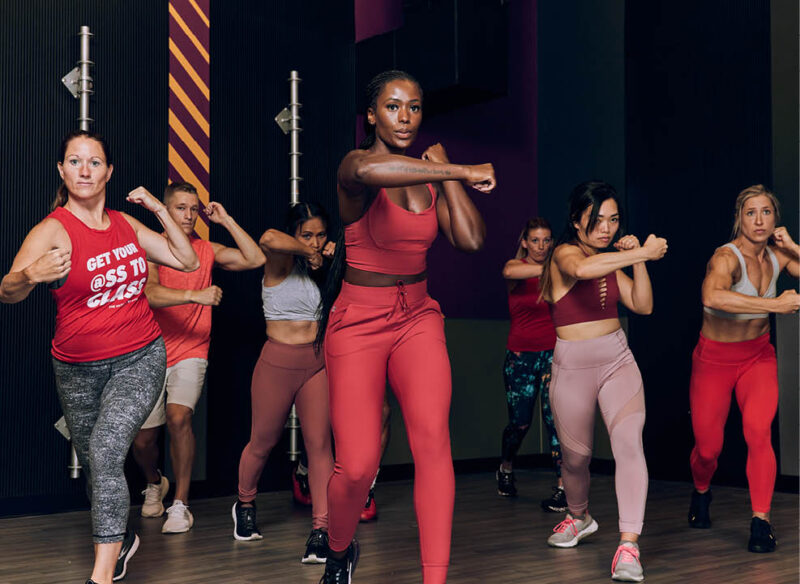
Which Habits Are a Detriment to Your Long-Term Goals?
For one, avoid negative self-talk. Negative thoughts about yourself and your body will worsen your mindset, words, and actions. The key is redirecting your criticism and discouragement into something positive—building your character and confidence and driving you forward. Your health and fitness journey will suffer if you dwell on the negative.
Second, you should also avoid poor sleep. Amy Paturel shares this in Nourish by WebMD: “Skimping on sleep sets your brain up to make bad decisions. It dulls activity in the brain’s frontal lobe, the locus of decision-making and impulse control.”
Sleep is the number one thing your body needs to function correctly. A well-rested mind and body are ready for action and self-improvement. When we sleep poorly, the hormones responsible for hunger and satiety get out of control—causing us to feel hungrier. In addition, our willpower and self-control get reduced, which can lead to worsened food choices. A good night’s sleep can be the difference between success and failure for your New Year’s resolutions.
Finally, an inability to manage your stress levels is a highly detrimental habit, especially regarding your fitness goals. Meditation, an outdoor walk in nature, or a yoga session can help to ease the mind and soul. Developing coping mechanisms for daily life is essential, as work and education can sometimes be stressful. Many coping strategies center around mindful breathing, which results in a more practical outlet than stress eating or another self-destructive method.
2: Set Realistic Goals
The main principle is that meeting your fitness goals takes time. As mentioned, the get-fit-quick schemes may show early results but aren’t sustainable or healthy. When setting goals, you must be realistic with yourself. Start by asking yourself why you want to up your fitness regimen. Be specific about your intentions. Next, determine how you plan to measure your progress over time. As the saying goes, small victories win the war.
Reflect & Reward
Rewards help us to stay motivated. They allow us to feel proud and accomplished and help to further our motivation. When setting goals, plan increments for reflection and celebration are a reasonable reward if you meet your goals. Festivities include a night out with friends, self-care, new gym clothing, or a massage to rejuvenate your muscles. Remember, food should not be considered a reward. Since it contributes to an unhealthy relationship with food as we view it in a detrimental light. As for reflection, you can complete it by conversing with your gym partner or trusted friend. You can discuss what’s been working well in your fitness journey and what hasn’t. From there, you can troubleshoot and determine probable solutions for your next goal.
Understand that Perfection isn’t Realistic
Perfection isn’t realistic. Repeat it. Perfection isn’t realistic. Regarding fitness, having goals and being serious about them is excellent. It isn’t exceptional to sacrifice all joy from your daily life to do it perfectly. Human beings aren’t perfect. And the fact of the matter is, you will make mistakes. The key is to value consistency over perfection. By using the 80/20 method—make the healthy choice 80 percent of the time, which includes a buffer for planned and spontaneous indulgences. We’ll discuss perfectionism through the view of abandoning “good food, bad food” in the coming section.
3: Identify Nutrient-Dense Foods You Enjoy
Nutrient-dense foods contain vitamins, minerals, complex carbohydrates, lean protein, and healthy fats. Examples include fruits, vegetables, whole grains, low-fat dairy products, seafood, lean meats, olive oil, and nuts. It’s critical to focus on your overall eating pattern. Consider doing a weekly food log to determine where to make swaps for more nutrient-dense items.
Good Food, Bad Food is a Thing of the Past
As mentioned above, perfectionism is highly detrimental to improving your overall health and fitness. Perfectionists often view food as good or bad, which isn’t the case and leads to an unhealthy relationship with food. These words promote judgment and lead to an all-or-nothing attitude, which often fails. This mentality is a thing of the past. Instead, our primary goal with food is to view it regarding nutrient composition. Take a moment to consider which foods in your standard diet are nutrient-dense and which ones aren’t. Most of your diet should consist of nutrient-dense foods, but that doesn’t mean you also can’t enjoy those that aren’t.
Determine Your Unique Composition
When most individuals think about their health and fitness goals and getting fit, they only consider the number on the scale. The truth is that our body composition is a better determinant of health and wellness. Body composition includes fat and non-fat mass (fat tissue) (organs, blood, bone, and muscles). Some participating in a fat-loss journey may experience changes in both categories, so the number on the scale won’t accurately represent progress.
To determine your unique body composition, you can take progress pictures at intervals to view the visual changes in your appearance. You can also use a device in many gyms or online that measures your makeup using electrical impulses. This technology is called a bioelectrical impedance analysis (BIA).
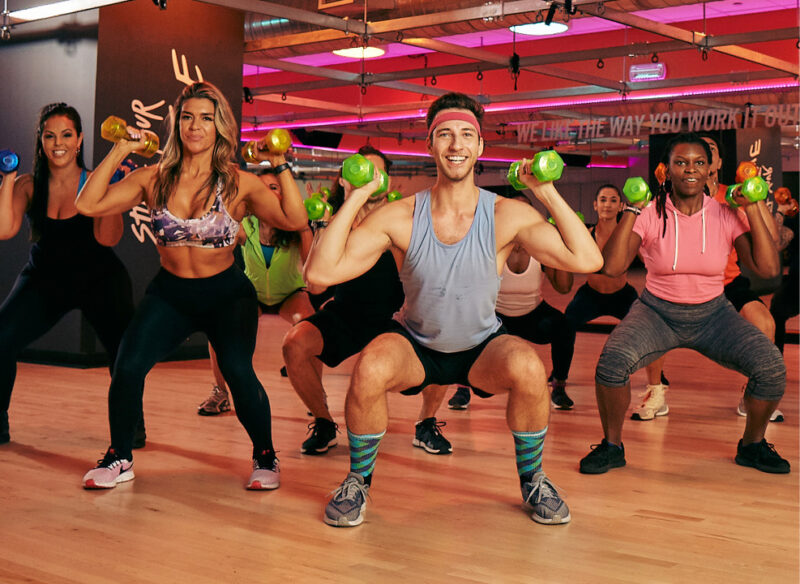
4: Incorporate Movement into Your Daily Routine
Incorporating movement into your daily routine is an easy way to accomplish your fitness objectives naturally. It can include minor changes in your habits, such as doing sit-ups or squats during commercial breaks, parking farther away from the grocery store to get more steps in, or going for a brisk walk during lunchtime. Incorporating these seemingly simple and short moments of exercise into your schedule will compound and add up to several minutes or more of improvement. That’s no small feat.
Additionally, consider how you can improve your gym routine. If you need help to go right now, start small. Get up early or prepare to go after your work or educational schedule is finished. As a reminder, prepare your clothes ahead of time and make it your goal only to get there. Once you’re there, start with five minutes of exercise. As this becomes easy, increase it to 15, 30, and so on until you hit your exercise goals. Over time, habits become easier. They help us feel fulfilled and accomplished, sleep better, and form stronger relationships.
5: Be Honest with Yourself
Honesty is always the best policy, especially with yourself. You must develop the right mindset if you genuinely want to improve your body weight, increase your core strength, or build muscle. What we discussed above and the understanding that you should expect defeat but never quit should be considered.
This mantra is an important one in that exercise kicks our butts. It is supposed to be challenging. Its goal is to be really, really hard and push our mental and physical limits further. We can overcome these challenges by maintaining a robust and forward-thinking mindset. Be honest with yourself about where you are in your journey today. Visualize where you want to be in six months and strengthen your mindset through commitment, perseverance, and perspective.
It’s All About Your Perspective
This article used the word journey to describe the timeframe devoted to reaching your fitness goals. And it was intentional, as it implies a long road, hardships, and setbacks. It also means self-improvement, growth, and positive momentum forward. It suggests change, and change is usually a good thing.
When it comes to your fitness journey, it’s all about maintaining your perspective. Focus on your vision and understand that you can overcome hurdles. If you consume extra calories, it’s okay. If you struggle with getting to the gym, it’s okay. If you fail to maintain a low-carb diet, it’s okay. The key is to align as many of your thoughts and actions with your end goal.
FAQ
Is dieting strictly necessary If I want to achieve my fitness goals?
To have an even better fitness goal resolution, a diet appropriately followed by a professional nutritionist will give you some extra help to achieve your goals quicker and with even better results.
What about the help of a certified personal trainer?
With the help of a personal trainer, you will improve your performance in the fitness routine, and at the same time, you will count on an expert who will help you execute your exercises without any risk of injury.
Crunch promotes a culture of positivity, inclusivity, and fun with no judgments by providing an environment for all individuals regardless of their health and fitness goals. Find a Crunch gym near you to try our free trial membership, or join Crunch now.
"Negative thoughts about yourself and your body will only worsen your mindset, words, and actions."
Crunch Blogger
1. Identify Your Current Habits
This section is about identifying your current habits to understand which ones serve you well and which don’t. Registered dietician Lainey Younkin shares this about our habits: “Drastic diets aren’t necessary for weight loss. They may wreak havoc on your metabolism and lead to weight regain. Take the simple and more effective approach of changing your habits instead for weight loss that lasts.”
Think about your daily life. Do you exercise regularly? Are you committed to an educational program or career? Do you eat well? How would you classify your mood and interactions with others? Consider writing down your thoughts in a notepad or on your phone. It is essential to do this regularly. Let’s discuss this further.
Which Habits are Beneficial for a Healthy Lifestyle?
Consistency is a highly beneficial habit for a healthy lifestyle. This is because long-term fitness goals, such as weight control, are about more than just exercising and eating foods dense in vitamins and minerals. It’s about doing each of these habits consistently. An excellent example is seen in bodybuilders. They can lift heavy weights once or twice a week. They may drink protein shakes and watch videos on form and fitness, but unless they are making an active effort in the gym every day, minus a rest day, they won’t bulk up.
When it comes to sustainable, realistic fitness goals, helpful habits include:
- monitoring your calorie intake, blood pressure, and blood sugar,
- participating in strength training and cardiovascular exercise,
- eating slowly, and
- avoiding processed foods.
The combination of these can vary from person to person, but the key is to identify your unique body composition and build smart fitness goals around that.
Which Habits are a Detriment to Your Long-Term Goals?
For one, avoid negative self-talk. Negative thoughts about yourself and your body will only worsen your mindset, words, and actions. The key is redirecting your criticism and discouragement into something positive—building your character and confidence and driving you forward on your path. If you dwell on the negative, your health and fitness journey will suffer.
Second, you should also avoid poor sleep. Amy Paturel shares this in Nourish by WebMD: “Skimping on sleep sets your brain up to make bad decisions. It dulls activity in the brain’s frontal lobe, the locus of decision-making and impulse control.”
Sleep is the number one thing your body needs to function properly. A well-rested mind and body is one that is ready for action and self-improvement. When we sleep poorly, the hormones responsible for hunger and satiety are thrown out of whack. This causes us to feel hungrier. In addition, our willpower and self-control are reduced, which can lead to worsened food choices. A good night’s sleep can truly be the difference between success and failure for your New Year’s resolutions.
Finally, an inability to manage your stress levels is an extremely detrimental habit, especially when it comes to your fitness goals. Meditation, an outdoor walk in nature, or a yoga session can help to ease the mind and soul. It’s also essential to develop coping mechanisms for daily life, as work and education can sometimes be stressful. Many coping strategies are centered around mindful breathing. This is a much more effective outlet than stress eating or another self-destructive method.
2. Set Realistic Goals
The main principle to remember here is that meeting your fitness goals takes time. As mentioned above, the get-fit-quick schemes may show early results but aren’t sustainable or considered healthy. When setting goals, you must be realistic with yourself. Start by asking yourself why you want to up your fitness regimen. Be specific about your intentions. Next, determine how you plan to measure your progress over time. As the saying goes, small victories win the war.
Reflect & Reward
Rewards help us to stay motivated. They allow us to feel proud and accomplished and help to further our motivation. When setting goals, plan increments for reflection and celebration if goals are met. Celebrations can include a night out with friends, self-care, a new piece of gym clothing, or a massage to rejuvenate your muscles. Remember, food should not be considered a reward. This contributes to an unhealthy relationship with food as we view it in a detrimental light. As for reflection, you can complete it by conversing with your gym partner or trusted friend. You can discuss what’s been working well in your fitness journey and what hasn’t. From there, you can troubleshoot and determine probable solutions for your next goal.
Understand that Perfection isn’t Realistic
Perfection isn’t realistic. Say it again. Perfection isn’t realistic. When it comes to fitness, it’s excellent to have goals and be serious about them. It isn’t excellent to sacrifice all joy from your daily life to do it perfectly. Human beings aren’t perfect. And the fact of the matter is, you will make mistakes. The key is to value consistency over perfection. This is done by using the 80/20 method—make the healthy choice 80 percent of the time. This includes a buffer for planned and spontaneous indulgences. We’ll discuss perfectionism through the view of abandoning “good food, bad food” in the coming section.
3. Identify Nutrient-Dense Foods You Actually Enjoy
Nutrient-dense foods contain vitamins, minerals, complex carbohydrates, lean protein, and healthy fats. Examples include fruits, vegetables, whole grains, low-fat dairy products, seafood, lean meats, olive oil, and nuts. It’s critical to focus on your overall eating pattern. Consider doing a weekly food log to determine where you can make swaps for more nutrient-dense items.
Good Food, Bad Food is a Thing of the Past
As mentioned above, perfectionism is highly detrimental to improving your overall health and fitness. Perfectionists often view food as good or bad, which isn’t the case and leads to an unhealthy relationship with food. These words promote judgment and lead to an all-or-nothing attitude, which often results in failure. This mentality is a thing of the past. Instead, our primary goal with food is to view it in terms of nutrient composition. Take a moment to consider which foods in your standard diet are nutrient-dense and which ones aren’t. The majority of your diet should consist of nutrient-dense foods, but that doesn’t mean you also can’t enjoy ones that aren’t.
Determine Your Unique Composition
When most individuals think about their health and fitness goals and getting fit, they only think about the number on the scale. The truth is that our individual body composition is a better determinant of health and wellness. Body composition includes fat mass (fat tissue) and non-fat mass (organs, blood, bone, and muscles). Some participating in a fat-loss journey may experience changes in both categories, which is why the number on the scale won’t be an accurate representation of progress.
To determine your unique body composition, you can take progress pictures at intervals to view the visual changes in your appearance. You can also use a device found in many gyms or online that measures your makeup using electrical impulses. This technology is called a bioelectrical impedance analysis (BIA).
4. Incorporate Movement into Your Daily Routine
An easy way to accomplish your fitness objectives naturally is to incorporate movement into your daily routine. This can include minor changes in your habits, such as doing sit-ups or squats during commercial breaks, parking farther away from the grocery store to get more steps in, or going for a brisk walk during lunchtime. Incorporating these seemingly simple and short moments of exercise into your schedule will compound and add up to several minutes or more of improvement. That’s no small feat.
Additionally, consider how you can improve your gym routine. If you struggle to go right now, start small. Get up early or prepare to go after your work or educational schedule is finished for the day. As a reminder, prepare your clothes ahead of time and make it your goal only to get there. Once you’re there, start with five minutes of exercise. As this becomes easy, increase it to 15, 30, and so on until you hit your exercise goals. Over time, habits become easier. They help us feel fulfilled and accomplished, sleep better, and form stronger relationships.
5. Be Honest with Yourself
Honesty is always the best policy, especially with yourself. If you genuinely want to improve your body weight, increase your core strength, or build muscle, you must develop the right mindset. This includes what we discussed above and the understanding that you should expect defeat but never quit.
This mantra is an important one in that exercise literally kicks our butts. It is not meant to be easy. In fact, it’s meant to be really, really hard and push our mental and physical limits further. We can overcome these challenges in stride by maintaining a strong, forward-thinking mindset. Be honest with yourself about where you are in your journey today. Visualize where you want to be in six months and strengthen your mindset through commitment, perseverance, and perspective.
It’s All About Your Perspective
Throughout this article, we used the word journey to describe the timeframe devoted to reaching your fitness goals. This was very intentional as it implies a long road, hardships, and setbacks. It also implies self-improvement, growth, and positive momentum forward. It simply implies change, and change is usually an extremely good thing.
When it comes to your fitness journey, it’s all about maintaining your perspective. Focus on your vision and understand that you can overcome hurdles. If you consume extra calories, it’s okay. If you struggle with getting to the gym, it’s okay. If you fail to maintain a low-carb diet, it’s okay. The key is to align as many of your thoughts and actions with your end goal.
Crunch promotes a culture of positivity, inclusivity, and fun with no judgments by providing an environment for all individuals regardless of their health and fitness goals. Find a Crunch gym near you to try our free trial membership, or join Crunch now. We’re here for you – at the gym or at home. Access the best live & on-demand workouts anytime, anywhere with Crunch+. Ready to get sweaty? Try hundreds of workouts for free! Start your free trial now!











